Filter by
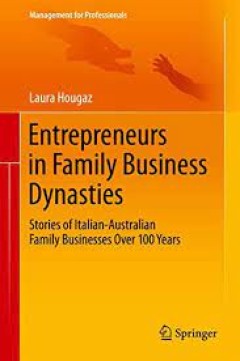
Entrepreneurs in Family Business Dynasties Stories of Italian-Australian Fam…
This book is a longitudinal story of seven Italian-Australian family business dynasties, spanning over a hundred years across three generations, and starting with the founding generation who migrated to Australia in the first half of the 20th century. With hard work and sacrifices, they set the foundations of a long-lasting family culture, and the values that form the glue of a multigenerationa…
- Edition
- -
- ISBN/ISSN
- 978-3-319-13918-0
- Collation
- 83 b/w illustrations
- Series Title
- -
- Call Number
- -

A Girl's Education: Schooling and the Formation of Gender, Identities and Fut…
This book argues that educators and the general public have become complacent about girls’ education as a consequence of the more recent fuss about problems for boys. After an analysis of persistent disquiet about girls’ lifestyles, it uses theories of gender and education to demonstrate that girls are being produced in contradictory ways in current schooling. Many girls develop a sense o…
- Edition
- -
- ISBN/ISSN
- 978-1-137-52487-4
- Collation
- -
- Series Title
- Palgrave Studies in Gender and Education
- Call Number
- 301 GIL g

Engineering Geology for Society and Territory - Volume 5 Urban Geology, Sust…
This book is one out of 8 IAEG XII Congress volumes, and deals with the theme of urban geology. Along with a rapidly growing world population, the wave of urban growth continues, causing cities to swell and new metropolitan centers to emerge. These global trends also open new ventures for underground city development. Engineering geology plays a major role in facing the increasing issues of the…
- Edition
- -
- ISBN/ISSN
- 978-3-319-09048-1
- Collation
- 132 b/w illustrations, 616 illustrations in colour
- Series Title
- -
- Call Number
- -
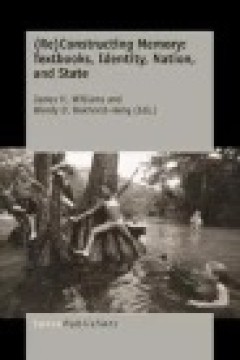
(Re)Constructing Memory: Textbooks, Identity, Nation, and State
This book engages readers in thirteen conversations presented by authors from around the world regarding the role that textbooks play in helping readers imagine membership in the nation. Authors’ voices come from a variety of contexts – some historical, some contemporary, some providing analyses over time. But they all consider the changing portrayal of diversity, belonging and exclusion in…
- Edition
- -
- ISBN/ISSN
- 9789463005098
- Collation
- -
- Series Title
- -
- Call Number
- 301 CON c
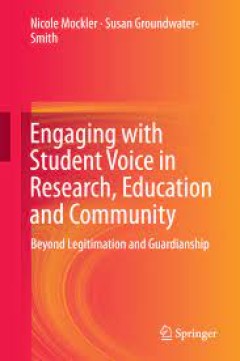
Engaging with Student Voice in Research, Education and Community Beyond Legi…
This work interrupts the current “consulting students” discourse that positions students as service clients and thus renders more problematic the concept of student voice in ways that it might be sustained as a democratic process. It looks at student voice holistically across realms of classroom practices, higher education, practitioner inquiry and policy formulation. The authors render pro…
- Edition
- -
- ISBN/ISSN
- 978-3-319-01985-7
- Collation
- 2 b/w illustrations
- Series Title
- -
- Call Number
- -
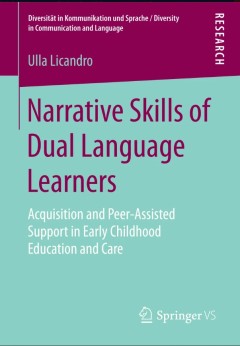
Narrative Skills of Dual Language Learners
The current work follows the premise that fictional oral narratives represent socio-emotionally and academically relevant communicative practices. Two studies are presented, aiming to (1) analyze the narrative skills of preschool-age Turkish-German dual language learners (DLLs) and (2) explore a peer-assisted approach to supporting DLLs’ narrative skills in early childhood education and care.…
- Edition
- 1
- ISBN/ISSN
- -
- Collation
- -
- Series Title
- -
- Call Number
- -
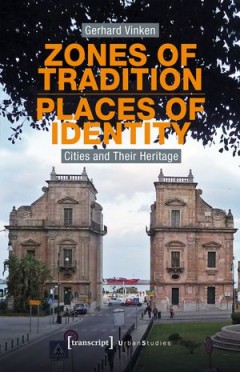
Zones of Tradition - Places of Identity: Cities and Their Heritage
What is the heritage of our cities? Which are the monuments, places, and spaces in which it accumulates, and by which practices is it formed, handed down, appropriated? Gerhard Vinken takes the readers to twelve cities on three continents and analyses the diverse and contradictory heritage formations that have had a lasting impact on urban life. The vitality of urban heritage, as these vivid an…
- Edition
- -
- ISBN/ISSN
- 9783839454466
- Collation
- -
- Series Title
- -
- Call Number
- 307.2 VIN z
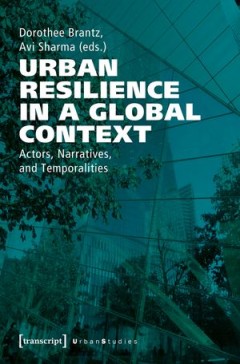
Urban Resilience in a Global Context: Actors, Narratives, and Temporalities
Urban Resilience is seen by many as a tool to mitigate harm in times of extreme social, political, financial, and environmental stress. Despite its widespread usage, however, resilience is used in different ways by policy makers, activists, academics, and practitioners. Some see it as a key to unlocking a more stable and secure urban future in times of extreme global insecurity; for others, it …
- Edition
- -
- ISBN/ISSN
- 9783839450185
- Collation
- -
- Series Title
- -
- Call Number
- 307.2 URB u
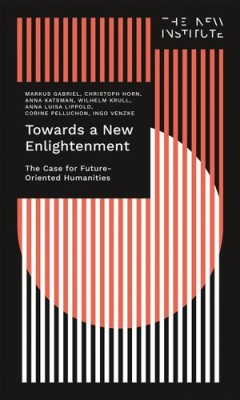
Towards a New Enlightenment - The Case for Future-Oriented Humanities
What role can the humanities play in shaping our common future? What are the values that guide us in the 21st century? How can we unleash the potential the humanities offer in a time of multiple crises? This volume tackles some of these fundamental questions, acknowledging and developing the changing role of academic discourse in a turbulent world. This timely book argues that the humanities en…
- Edition
- -
- ISBN/ISSN
- 9783839465707
- Collation
- -
- Series Title
- -
- Call Number
- 301 TOW t
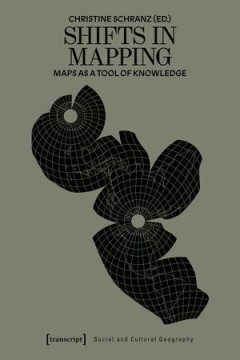
Shifts in Mapping: Maps as a Tool of Knowledge
Depicting the world, territory, and geopolitical realities involves a high degree of interpretation and imagination. It is never neutral. Cartography originated in ancient times to represent the world and to enable circulation, communication, and economic exchange. Today, IT companies are a driving force in this field and change our view of the world; how we communicate, navigate, and consume g…
- Edition
- -
- ISBN/ISSN
- 9783839460412
- Collation
- -
- Series Title
- -
- Call Number
- 307.2 SHI s
 Computer Science, Information & General Works
Computer Science, Information & General Works  Philosophy & Psychology
Philosophy & Psychology  Religion
Religion  Social Sciences
Social Sciences  Language
Language  Pure Science
Pure Science  Applied Sciences
Applied Sciences  Art & Recreation
Art & Recreation  Literature
Literature  History & Geography
History & Geography